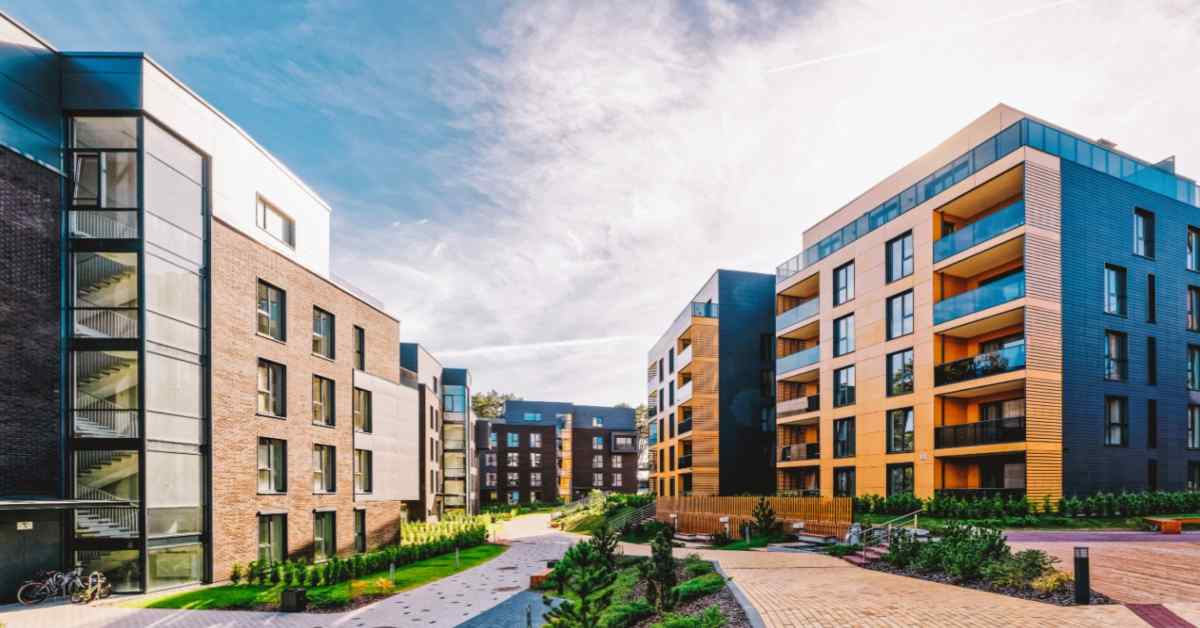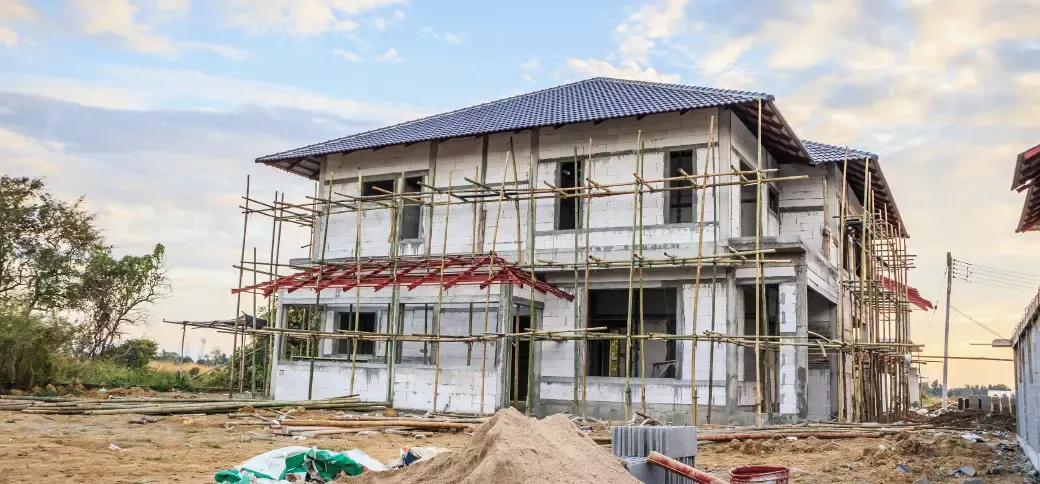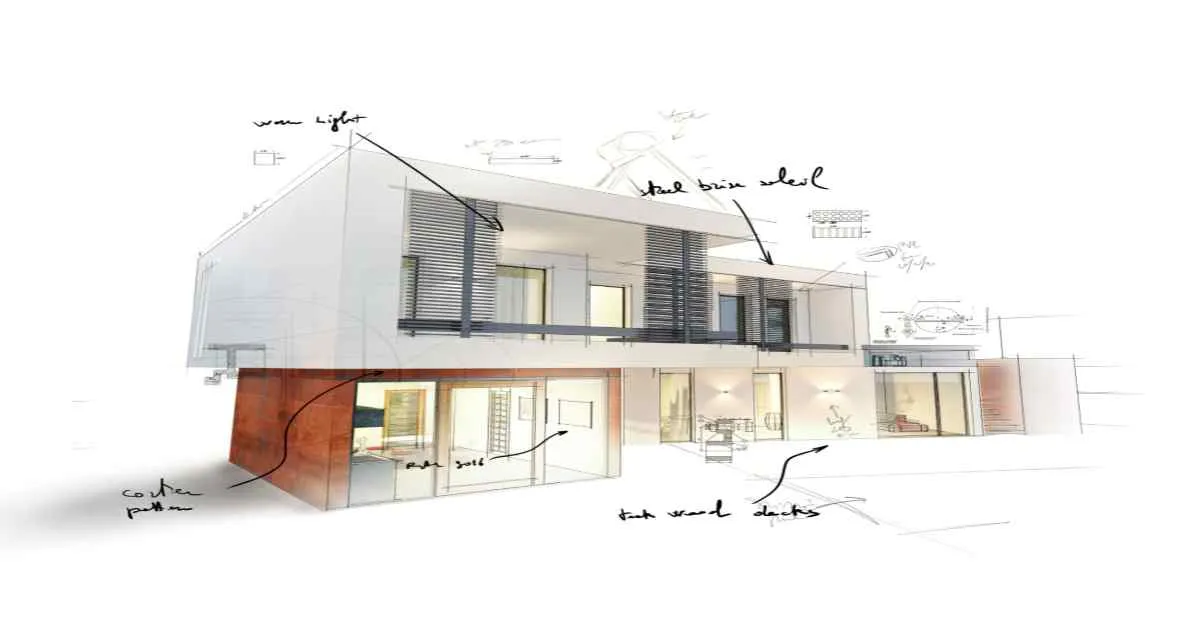Table of Contents
Quality Service Guarantee Or Painting Free

Get a rental agreement with doorstep delivery

Find the BEST deals and get unbelievable DISCOUNTS directly from builders!

5-Star rated painters, premium paints and services at the BEST PRICES!
Loved what you read? Share it with others!

Apartment vs Condo: Key Differences You Need to Know
Table of Contents
When considering your next living arrangement, understanding the differences between an apartment vs condo is essential. This comparison will help you determine which option best suits your lifestyle, budget, and long-term goals. Apartments typically offer more flexibility and less financial burden upfront, while condos provide an opportunity for equity and more personal control over your living space. Let’s explore the key features of each to assist you in making an informed decision on where to call home. Whether you're renting for the first time or looking to purchase, knowing these distinctions is crucial.
What is an Apartment?
An apartment is a self-contained housing unit that occupies only part of a building. It typically consists of one or more rooms, including a bedroom, living room, kitchen, and bathroom. Apartments are commonly found in urban areas and are often rented rather than owned. They can vary widely in size, layout, and amenities, ranging from small studio apartments to spacious multi-bedroom units with various amenities such as gyms, pools, and communal spaces.
Key Characteristics of Apartments:
- Self-contained Units: Apartments are self-contained living spaces within a larger building, usually with their entrance, kitchen, bathroom, and living areas.
- Multi-unit Buildings: Apartments are typically part of multi-unit buildings, which may range from small complexes to high-rise towers.
- Rental or Ownership: While many apartments are rented, some are also owned by individuals or companies for investment purposes or personal residence.
- Shared Facilities: Depending on the building, apartments may share facilities such as laundry rooms, parking areas, gyms, pools, or common recreational spaces.
- Variety of Sizes and Layouts: Apartments come in various sizes and layouts, from studio apartments (one room serving as both living and sleeping space) to multiple-bedroom units with separate rooms for different purposes.
- Urban Locations: Apartments are commonly found in urban areas, offering residents proximity to city centres, workplaces, public transportation, and amenities such as shops, restaurants, and entertainment venues.
- Lease Agreements: Tenants typically sign lease agreements with landlords or property management companies, outlining terms such as rent, lease duration, and responsibilities of both parties.
- Community Living: Apartment living often involves proximity to neighbours, fostering a sense of community and requiring adherence to building rules and regulations regarding noise, pets, and shared spaces.
What is a Condominium?
A condominium, often referred to as a condo, is a type of housing arrangement where individuals own individual units within a larger complex or building. Each unit owner has legal title to their specific unit, including the interior space, while common areas such as hallways, elevators, and amenities are owned collectively by all unit owners in the condominium association. Condominiums can take various forms, including apartment-style units in high-rise buildings, townhouses, or even detached homes within a planned community.
Quality Service Guarantee Or Painting Free

Get a rental agreement with doorstep delivery

Find the BEST deals and get unbelievable DISCOUNTS directly from builders!

5-Star rated painters, premium paints and services at the BEST PRICES!
Key Characteristics of Condominiums:
- Individual Ownership: Unlike apartments, where units are typically rented, condominium units are owned individually by their occupants.
- Shared Ownership of Common Areas: While unit owners have exclusive ownership of their units, they share ownership of common areas and facilities with other residents. These common areas are managed and maintained by a condominium association, often through fees paid by unit owners.
- Condominium Association: The condominium association is responsible for managing the common areas, enforcing rules and regulations, collecting fees, and overseeing the overall operation of the condominium complex. Unit owners typically participate in the decision-making process of the association.
- Maintenance Responsibilities: While unit owners are responsible for maintaining the interior of their units, the condominium association is typically responsible for maintaining the exterior of the building, landscaping, and shared facilities.
- Community Living: Similar to apartments, condominium living often involves close proximity to neighbours and shared amenities, fostering a sense of community. However, condominiums may offer more privacy and autonomy compared to rental apartments due to individual ownership.
- Legal Structure: Condominium ownership involves a legal structure where unit owners hold a share of the common elements of the property, typically outlined in a declaration of condominium and governed by state or provincial laws.
Comparing the Condo vs Apartment Pros and Cons
When choosing between a condominium vs apartment, it's important to consider both the benefits and drawbacks of each. This understanding can help you make an informed decision that aligns with your lifestyle preferences and financial capabilities.
Pros and Cons of Apartments
Pros:
- Lower Financial Commitment: Generally, renting an apartment requires less financial outlay upfront compared to buying a condo. Renters often pay only a security deposit along with the first month's rent.
- Flexibility: Leasing offers more flexibility to move after the lease term ends without the burden of selling property.
Cons:
- No Equity: Renting offers no return on investment as you are not building equity over time.
- Limited Control: Tenants have limited ability to alter or customise their living space.
- Variable Rent: Rent can increase at the end of each lease term, subject to market conditions and landlord discretion.
Pros and Cons of Condominiums
Pros:
- Equity Building: Owning a condo allows you to build equity, potentially increasing your wealth as property values rise.
- Customisation Freedom: As an owner, you can remodel or decorate your space to suit your tastes without needing landlord approval.
- Potential Additional Income: You can rent out the property to generate income, a perk not available when you are renting an apartment.
Cons:
- Financial Responsibility: Condo owners are responsible for their mortgage, property taxes, and monthly association fees, which can be significant.
- Less Flexibility: Selling a condo can be more complicated and time-consuming compared to moving out of a rented apartment.
Apartment Building vs Condominium: Key Differences Explained
When considering your next living space, understanding the differences between apartments and condominiums is crucial. Both offer unique advantages, but they cater to different needs and preferences in terms of ownership, financial commitments, decision-making power, and investment potential.
What is the Difference Between an Apartment and a Condominium?
| Feature | Apartment | Condominium |
| Ownership | Rented from a landlord or management company. | Owned individually, akin to property. |
| Costs | Monthly rent and possibly utility fees; no property taxes directly. | Mortgage payments, property taxes and condo fees for common area amenities. |
| Financial Responsibility | Renters pay a fixed monthly rent, and maintenance & some utilities—no property taxes need to be paid. | Owners pay mortgage, property taxes, and condo fees for maintenance and amenities. |
| Decision-Making Power | Limited; tenants must seek permission for changes and abide by lease terms. | High; owners have more control over their property but must adhere to association rules. |
| Investment Potential | No equity built; purely rental payments. | Potential to build equity and benefit from property value appreciation. |
| Amenities | Varies widely; can include pools, fitness centres, and community areas. | Often includes similar amenities to apartments, but can also offer more upscale options depending on the condo association. |
| Flexibility | More flexible leasing terms; easier to move. | Selling a condo can be time-consuming; less flexibility to move. |
| Customisation | Limited to no options for customisation as changes need landlord approval. | Owners can customise their space freely. |
How to Choose Between an Apartment and a Condo?
When it comes to choosing a place to live, the decision between an apartment and a condominium can significantly impact your lifestyle and finances. This guide will help you understand the key difference between a condo and an apartment and the factors to consider, making your decision a bit easier.
Consider Your Lifestyle Needs
- Flexibility vs Stability: If you value flexibility and short-term commitments, an apartment may be the better choice due to the ease of moving after a lease ends. On the other hand, if you're looking for a more permanent home and want to build equity, a condo might be more suitable.
Financial Considerations
- Initial and Ongoing Costs: Renting an apartment generally requires less money upfront, with costs limited to rent and a security deposit. Buying a condo involves a down payment, mortgage payments, property taxes, and homeowners' association (HOA) fees, but it also allows you to build equity and potentially benefit from property appreciation.
- Amenities and Fees: Both living arrangements can offer amenities like gyms, pools, and community spaces. It’s important to compare what’s available and the associated costs. Condos often have higher fees but might offer more exclusive amenities.
Control and Customisation
- Ability to Customise: Apartment renters have limited ability to make changes to their living space. In contrast, condo owners can often remodel or decorate their homes as they see fit, following any guidelines set by the condo association.
- Decision-Making Power: Condo owners usually have a say in the community's rules and decisions about the property, whereas apartment tenants have to adhere to the rules set by their landlords.
Investment Potential
- Building Equity: Condos can be an investment. Over time, owners can build equity in their property. Apartments, however, do not provide financial benefits beyond housing and can't be sold for a profit.
Simplify Your Property Search with NoBroker!
Understanding the differences between an apartment vs condo is crucial before making a housing commitment. Each offers unique benefits, and choosing the right type can impact your financial and lifestyle satisfaction. NoBroker simplifies this decision-making process, providing a seamless platform to rent, buy, or sell properties, whether it's an apartment, condo, or any other type of residence. By using NoBroker, you ensure that you find the best match for your housing needs without the hassle of intermediaries.
Ready to find your perfect home? Visit NoBroker today and start your property journey.
Frequently Asked Questions
Ans: Apartments offer flexibility with leasing terms and minimal maintenance responsibilities.
Ans: Owning a condo allows for equity growth & personal customisation of the space, and often includes access to upscale amenities.
Ans: Condo owners pay mortgages, property taxes, and HOA fees, whereas apartment tenants typically only pay rent, maintenance and utilities.
Ans: An apartment is typically more suited for short-term living due to its flexibility in lease terms and minimal commitment.
Ans: Yes, condos often come with HOA fees that cover communal amenities and maintenance, which aren't typically found in apartment costs.
Recommended Reading

House Construction Cost: Per Sq Ft Rates, Material Cost and GST Rates in 2026
January 31, 2025
127567+ views

Plinth Area: Meaning, Calculation & Difference from Built-Up, Carpet, Covered and Floor Area
January 31, 2025
100863+ views

5 Lakh Budget House Plans With Smart Layouts and Cost-Effective Designs in 2026
January 31, 2025
89303+ views

Builder Floors: A Budget-Friendly Path to Your Dream Home in 2026
January 31, 2025
57899+ views

Need to Know What Carpet Area Calculation is? Read on to Know All about it
January 31, 2025
56712+ views
Loved what you read? Share it with others!
Most Viewed Articles

GFRG Panels: A New Technology in Building Construction
January 31, 2025
261920+ views

Top Cleanest Cities in India: Swachh Survekshan Top Ranked List
July 25, 2025
224924+ views

February 6, 2026
213531+ views

How Mivan Construction Technology Is Transforming the Art of Building!
January 31, 2025
183838+ views

CIDCO Lottery: Application Process, Eligibility, Flat Prices and Dates in 2026
April 30, 2025
138355+ views
Recent blogs in
February 19, 2026 by Krishnanunni H M
Top 10 Construction Companies in Ghaziabad: Leading Builders and Developers List in 2026
February 19, 2026 by Kruthi
Top 10 Construction Companies In Jaipur for Residential and Commercial Projects in 2026
February 19, 2026 by Krishnanunni H M
10 Best Construction Companies In Pune: Trusted Builders and Contractors in 2026
February 18, 2026 by Kruthi









 Full RM + FRM support
Full RM + FRM support

Join the conversation!